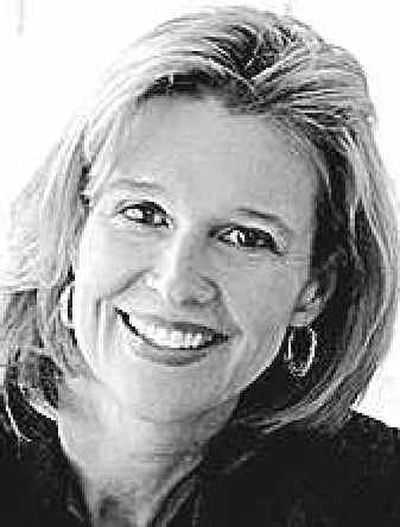Kerry just wasn’t the ‘it’ man

As the new year begins with ritual reflection and resolution, Democrats are consumed with angst, ennui and uncertainty.
Was it the values thing that caused them to lose, or were they too weak on terrorism? Was it something in the way their candidate moved? Sen. John F. Kerry himself posed such questions recently during a Newsweek interview:
“The pundits have never liked me,” Kerry said to the reporter. “Is it the way I look? The way I sound?”
The answer to all of the above is, in a word, yes. It was the values thing; it was terrorism; and it was the way Kerry looked and talked – all combined, but none singly.
Democrats won’t be able to solve these riddles until they realize that the answer is implicit in the question. In a complex, diverse world, nothing’s ever as simple as either-or, any more than America is strictly a red state-blue state nation. Or a metro-retro world.
Kerry and the Democratic Party weren’t viewed as either “weak on values” or “weak on terrorism,” but were perceived as weak on values and therefore weak on terrorism. In the real world – as opposed to one slapped together by pollsters and electoral cartographers – one doesn’t separate core values from the goals one seeks to achieve.
Yes, clearly, Americans are deeply concerned about terrorism and security. And, yes, Americans are deeply concerned about values, though those values are not necessarily measured in terms of specific issues such as abortion rights and same-sex marriage. The search for values runs far deeper than the referendum du jour.
They run to the core of who we are, the underlying principles that course through America’s red, white and blue veins, the DNA of the USA – honor, constancy and fealty, to name a few. They are the abstractions that undergird the concrete, the qualities we associate with adults, the coagulants of trust.
Come election time, the essential question wasn’t whether men should marry men or women should be allowed access to abortion, but which candidate Americans trusted more to do the right thing most often. And which man Americans trusted most to protect them in a world given to madmen (and women) who willingly would blow themselves up for the pleasure of killing Americans.
This is where Kerry’s persona came into play. Was it the way he looked? The way he talked? Yes and yes, which poses its own little mystery. In nearly every way, John Kerry seemed born to the presidency. Straight out of central casting, he had the right looks, the right resume, the Purple Hearts.
Everything but “it.” The je ne sais quoi of love and politics. We have a hard time defining “it,” whateveritis – warmth, humility, sincerity? – but we know when it’s absent.
Among friends and family, Kerry may have been a cuddly composite of Bill Clinton, Martin Luther King Jr. and Ben Stiller, but he was reliably unable to telegraph anything but the aloof, supercilious oracle to even eager strangers. During the campaign, his personality deficit was further aggravated by photo-ops wherein Kerry indulged in activities — snowboarding and windsurfing, for instance — that Americans typically don’t associate with grown-ups.
Not that there’s anything wrong with those things. A 60-year-old man who can snowboard is a rare athlete, but image-wise, the cartoon balloon over his head isn’t saying, “You can trust me to save you from beheaders.” It’s saying: “Look at me-eeeee!”
Finally, as nearly everyone has noted, Kerry and the Democrats weren’t helped by their helpers, namely Hollywood and Michael Moore. I saw “Fahrenheit 9/11” and enjoyed it – for what it was. For 90 minutes or so, I wanted to roll a joint, braid my ponytail, sew paisley patches on my jeans and make fun of the parents.
But alas – as childhood did for most of us – the moment passed and then I wanted to give Moore a shave and a lecture about chewing gum with his mouth closed. In these very grown-up times, when lives and nations are at stake, the man aspiring to the world’s most powerful office is not helped by the acclaim of elderly adolescents.
Meanwhile, nothing about Kerry engendered the kind of trust that would make a majority of Americans abandon the devil they knew for a man who didn’t seem to grasp that values are more than a political strategy. By his attempts to please all – to take “four sides of every issue,” as one of his advisers put it – Kerry convinced voters that he didn’t even trust himself.